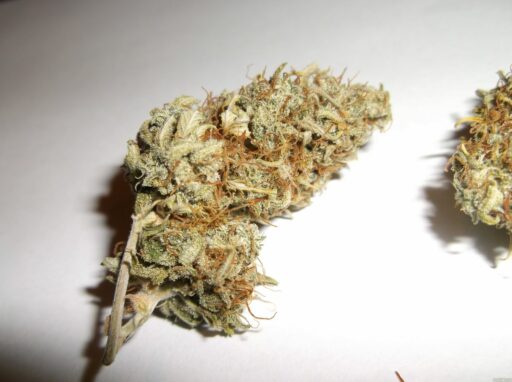The intersection of medical marijuana use and gun ownership rights presents a complex legal landscape fraught with contradictions and challenges. As states increasingly legalize medical marijuana, gun owners who are patients face a conflict between state laws that permit cannabis use and federal regulations that restrict firearm possession among drug users. This article navigates the nuanced issues at this crossroads, examining the legal implications, the debate around the Second Amendment, the impact of gun control legislation on medical marijuana users, and offers practical guidance for responsible gun ownership in the context of cannabis legalization.
Key Takeaways
- Federal law prohibits firearm possession by individuals who use or are addicted to controlled substances, including state-legalized medical marijuana.
- State laws allowing medical marijuana use create a legal gray area for gun owners, leading to potential conflicts during background checks for firearm purchases.
- Advocacy efforts and legal challenges continue to shape the conversation around reconciling Second Amendment rights with substance regulation.
- Medical marijuana users have faced legal repercussions under gun control laws, highlighting the need for clearer policies and potential reforms.
- Gun owners who are medical marijuana patients should stay informed of the evolving legal landscape and seek resources to ensure compliance with all applicable laws.
The Legal Intersection of Medical Marijuana and Firearm Ownership

Federal vs. State Laws on Gun Rights and Cannabis Use
The dichotomy between federal and state laws creates a complex landscape for individuals navigating the intersection of gun rights and medical marijuana use. Federal law classifies marijuana as a Schedule I controlled substance, which prohibits users from possessing firearms. However, many states have legalized medical marijuana, leading to a conflicting legal scenario for gun owners.
- Federal law: Prohibits firearm possession by users of controlled substances, including marijuana.
- State laws: Vary widely, with some allowing medical marijuana and others not.
The tension between these levels of government complicates the exercise of Second Amendment rights for medical marijuana cardholders. > The federal government has repeatedly claimed that those analogues provide clear support for limiting gun rights for cannabis users. But several federal courts have begun to question this stance, indicating a potential shift in the legal interpretation of these rights. Gun owners must remain vigilant and informed about the latest legal developments to ensure compliance and protect their rights.
Implications of Marijuana Use on Gun Purchase Background Checks
When attempting to purchase a firearm, individuals are subjected to a background check that does not explicitly include information about a medical marijuana card. However, the ATF Form 4473 poses a critical question regarding substance use which can directly impact the eligibility of a prospective gun owner. This form, required for federally licensed firearm transactions, includes a question about the unlawful use of controlled substances, where marijuana remains federally illegal.
- The question on the form reads: "Are you an unlawful user of, or addicted to, marijuana or any depressant, stimulant, narcotic drug, or any other controlled substance?"
- Answering ‘yes’ can disqualify an individual from purchasing a firearm.
- Answering ‘no’ while holding a medical marijuana card could be considered lying on a federal document, which is a criminal offense.
It is essential for individuals to understand the gravity of this question, as it intertwines federal law with personal health choices and constitutional rights. The ambiguity surrounding state-legalized marijuana and federal firearm regulations creates a precarious situation for medical marijuana cardholders seeking to exercise their Second Amendment rights.
Navigating Gun Ownership with a Medical Marijuana Card
For individuals with a medical marijuana card, the path to gun ownership is fraught with legal ambiguities. Federal law prohibits gun possession by anyone who uses or is addicted to controlled substances, including state-legalized medical marijuana. This federal stance conflicts with state laws where medical cannabis is legal, creating a complex scenario for patients who are also gun enthusiasts or feel the need for self-defense.
- Understand the federal law: It’s illegal under federal law to possess firearms if you use or are addicted to controlled substances.
- Know your state’s stance: Some states have laws that protect medical marijuana users’ gun rights, but these may not shield you from federal enforcement.
- Consider the risks: Weigh the potential legal consequences of gun ownership with a medical marijuana card against your need for protection or enjoyment of firearms.
Navigating this crossroads requires careful consideration of the legal risks and an understanding of both federal and state regulations. It’s essential to stay informed and seek legal counsel if you’re at the intersection of these two rights.
The Second Amendment Debate in the Context of Substance Regulation

Historical Perspectives on Gun Rights and Controlled Substances
The historical relationship between gun rights and the regulation of controlled substances like marijuana has been complex and often contentious. The evolution of gun laws has frequently mirrored societal attitudes towards drugs, with periods of stringent control coinciding with heightened concerns over substance abuse.
- The early 20th century saw the enactment of the first federal drug control laws, which did not initially impact gun rights.
- The 1930s brought about the first major federal gun control act, which coincided with the prohibition of marijuana.
- Subsequent decades witnessed an increasing intertwining of drug and gun regulations, often reflecting a response to crime waves and drug epidemics.
The interplay between gun rights and drug control legislation reveals a pattern of reactive policymaking, where shifts in one area often prompt changes in the other. This historical dance has set the stage for the current legal quagmire faced by medical marijuana users who wish to exercise their Second Amendment rights.
Current Legal Challenges and Advocacy Efforts
The legal landscape for medical marijuana users who wish to exercise their Second Amendment rights is fraught with challenges. Federal law prohibits gun sales to individuals who use or are addicted to controlled substances, including state-legalized medical marijuana. This has led to a number of legal challenges where advocates argue for the rights of medical marijuana cardholders to own firearms.
Recent cases have seen district attorneys and legal advocacy groups stepping into the fray. For instance, the Pennsylvania District Attorney‘s action against federal restrictions highlights the growing tension between state and federal laws. Advocacy groups continue to push for reforms, emphasizing the need to reconcile public safety with constitutional freedoms.
- Legal challenges to federal restrictions on gun ownership for medical marijuana users
- Advocacy efforts to align state and federal laws
- The role of litigation funding in shaping the legal landscape
The conflict between gun rights and medical marijuana use is a complex issue that requires careful consideration of both public safety and individual freedoms.
Balancing Public Safety with Constitutional Rights
The debate surrounding the intersection of medical marijuana use and gun ownership rights hinges on a critical issue: how to balance public safety with the constitutional rights of individuals. On one hand, there is a clear imperative to ensure that firearms do not fall into the hands of those who may pose a risk to themselves or others. On the other hand, the Second Amendment guarantees the right to bear arms, a principle deeply ingrained in American culture and law.
- Public safety concerns often cite the potential impairment associated with marijuana use as a risk factor in gun handling.
- Constitutional rights advocates argue that responsible medical marijuana patients should not be automatically disqualified from gun ownership.
- The complexity of the issue is heightened by the varying legal landscapes across states, some of which have legalized medical marijuana while others have not.
The challenge lies in crafting legislation that respects the rights of citizens while addressing valid public safety concerns. This delicate balance requires nuanced laws that are both fair and enforceable, taking into account the evolving perceptions and scientific understanding of marijuana use.
Medical Marijuana Users in the Crosshairs of Gun Control Legislation

Case Studies: Legal Repercussions for Gun Owners Using Medical Marijuana
The intersection of medical marijuana use and gun ownership has led to a series of legal challenges and court cases. Individuals with medical marijuana cards have found themselves at odds with federal regulations when attempting to exercise their Second Amendment rights. A notable example is highlighted by a case where marijuana users sued for gun rights, emphasizing the conflict between state-sanctioned cannabis use and federal firearm regulations.
- In one case, a plaintiff was denied the purchase of a firearm due to their status as a medical marijuana patient, as indicated on a federal form.
- Another instance involved a legal challenge to the prohibition of gun ownership for those who use marijuana medicinally, arguing that it infringes upon constitutional rights.
The legal landscape is fraught with contradictions, as state laws permitting medical marijuana use clash with federal mandates that classify cannabis as an illegal substance. This dichotomy creates a precarious situation for lawful gun owners who are also medical marijuana patients.
The outcomes of these cases have significant implications for the future of gun rights and medical marijuana use. They serve as a bellwether for potential reforms and the evolving attitudes towards both issues.
The Role of Advocacy Groups in Shaping Policy
Advocacy groups play a pivotal role in the intersection of medical marijuana use and gun ownership rights. They provide a voice for affected individuals and influence policy reform through various initiatives. For instance, the Marijuana Justice Coalition, convened by the Drug Policy Alliance, focuses on federal marijuana reform with an emphasis on racial and economic justice.
Advocacy efforts often target the removal of barriers for people impacted by the criminal justice system, emphasizing the importance of second chances and community-informed policies.
Organizations also engage in educational campaigns and legal support, aiming to inform the public and assist those navigating the complex legal landscape. Below is a list of key areas of focus for advocacy groups:
- Policing and criminal justice reform
- Racial equity and justice
- Public health and safety
- State and local policy
These efforts are crucial in shaping a more equitable and just system that respects both medical marijuana patients’ rights and the principles of responsible gun ownership.
Potential Reforms and the Future of Dual Rights
As the landscape of legalization evolves, the intersection of gun ownership and medical marijuana use demands thoughtful reforms. Advocates argue for clear guidelines that reconcile state and federal laws, ensuring that individuals are not unjustly penalized for legally prescribed medication.
- Policy options that remove barriers for affected individuals are crucial.
- Highlighting the leadership of those directly impacted by current policies can drive meaningful change.
- Education and awareness campaigns are necessary to inform stakeholders of their rights and responsibilities.
The future of dual rights hinges on the ability to balance public safety with the constitutional freedoms afforded to citizens.
Efforts to reform gun control legislation must consider the nuances of medical marijuana use. The dialogue between lawmakers, advocacy groups, and the public will shape the trajectory of these dual rights.
Practical Guidance for Responsible Gun Ownership Amid Cannabis Legalization
Best Practices for Complying with Conflicting Laws
Navigating the legal landscape of gun ownership as a medical marijuana user requires careful consideration of both federal and state regulations. Understanding the nuances of these laws is crucial for maintaining compliance and upholding one’s rights.
- Always consult with legal experts familiar with both gun laws and cannabis regulations in your jurisdiction.
- Stay informed about changes in legislation that may affect your rights as both a gun owner and a medical marijuana patient.
- If you reside in a state with legal medical marijuana, investigate how this intersects with your ability to own or purchase firearms.
It is essential to recognize that federal law does not recognize the legality of marijuana, which can impact gun ownership rights. Being informed and proactive can help navigate these complex issues.
For example, in Pennsylvania, the implications of holding a medical marijuana card can extend to the ability to apply for or renew a concealed carry license. It is advisable to review state-specific guidelines and seek advice on how to proceed in such situations.
Educational Resources for Gun Owners and Medical Marijuana Patients
In the evolving landscape of cannabis legalization, it is crucial for individuals at the intersection of gun ownership and medical marijuana use to stay informed. Educational resources play a pivotal role in navigating the complex legal terrain.
For gun owners who are also medical marijuana patients, a variety of resources are available to help understand their rights and responsibilities. These include:
- Marijuana news websites: Stay updated with the latest on legalization, industry developments, and health benefits. For instance, recent posts cover marijuana laws in various states such as Georgia, New York, and Florida.
- Legal advice forums: Engage with legal experts and community members to discuss specific scenarios and get advice.
- State-specific guides: Access detailed information on state laws regarding gun ownership and medical marijuana use.
- Workshops and webinars: Participate in educational sessions hosted by advocacy groups and legal professionals.
It is essential to proactively seek out information and remain vigilant about changes in legislation that could impact your rights as both a gun owner and a medical marijuana patient.
By leveraging these resources, individuals can make informed decisions and take appropriate actions to ensure compliance with the law while advocating for their rights.
Legal Services and Support for Affected Individuals
For individuals at the intersection of medical marijuana use and gun ownership, navigating the legal landscape can be daunting. Legal assistance organizations specialize in providing guidance and support to those who find themselves in this complex situation. These entities offer a range of services, from legal advice to representation in court.
- ClinicLaw & Policy Lab: Offers a collaborative approach to legal and social work, addressing the needs of gun owners with medical marijuana cards.
- Immigrants’ Rights Clinic: Provides support for non-citizens who may face additional legal challenges.
- Stanford Constitutional Law Center: Engages in advocacy and legal research, potentially benefiting those affected by conflicting laws.
It is crucial for affected individuals to seek specialized legal support to ensure their rights are protected and to navigate the intricacies of compliance with both state and federal regulations.
Conclusion
In conclusion, the intersection of medical marijuana use and gun ownership rights presents a complex legal and ethical landscape that requires careful navigation. As state and federal regulations evolve, individuals must remain informed about the implications of their choices regarding medical marijuana and firearms possession. The tension between state laws allowing medical marijuana and federal prohibitions that impact gun ownership rights underscores the need for a nuanced understanding of the law. Responsible gun owners who are also medical marijuana patients must balance their health needs with their Second Amendment rights, all while staying compliant with the shifting legal environment. It is imperative for policymakers to consider both public safety and individual liberties as they work to reconcile these issues in a manner that respects the rights and needs of all citizens.
Frequently Asked Questions
Can I own a gun if I have a medical marijuana card?
Under federal law, the use of marijuana is still illegal, and federal law prohibits gun sales to anyone who uses or is addicted to a controlled substance. Having a medical marijuana card may disqualify you from purchasing a firearm under federal law, even if medical marijuana is legal in your state.
Does having a medical marijuana card affect my gun rights at the state level?
State laws vary widely, and some states may not enforce the federal prohibition on gun ownership for medical marijuana users. It’s important to check your state’s laws and regulations regarding both medical marijuana use and gun ownership.
What happens during a gun purchase background check if I’m a medical marijuana user?
During a background check, you may be asked whether you use or are addicted to controlled substances. Answering ‘yes’ can result in denial of the purchase. Additionally, the existence of a medical marijuana card may be considered evidence of marijuana use.
Are there any legal advocacy groups working on behalf of medical marijuana users’ gun rights?
Yes, there are advocacy groups that focus on the intersection of gun rights and marijuana legalization. They work to challenge existing laws and promote policy changes that protect the rights of individuals in both regards.
What are some best practices for medical marijuana users who own guns?
It’s crucial to stay informed about both federal and state laws regarding gun ownership and medical marijuana use. Keeping your medical marijuana use private and separate from your gun ownership may help avoid legal complications. Consult with a legal expert for advice tailored to your situation.
Can recent gun safety laws impact my rights as a medical marijuana user and gun owner?
Recent gun safety laws, such as universal background checks, may have implications for medical marijuana users who own or wish to purchase guns. These laws are intended to prevent gun violence and may affect individuals who are federally prohibited from owning firearms due to controlled substance use.





